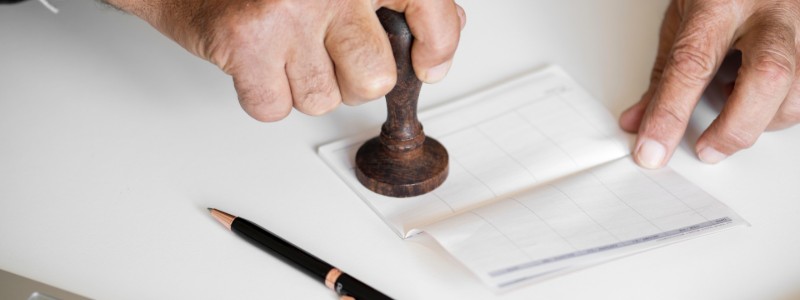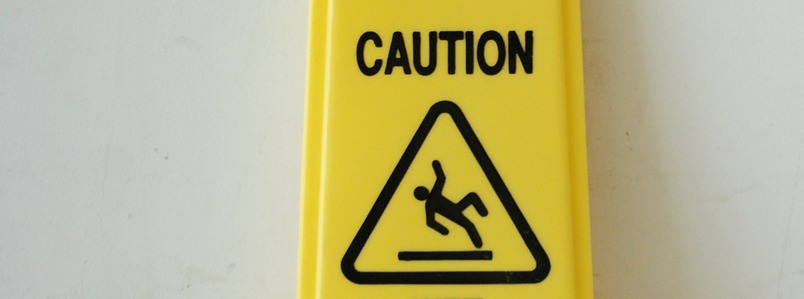What Should I Do If I'm Injured at a Bank?

When you enter a bank, your physical safety is usually the last thing on your mind. You may be concerned about the security of your accounts. But typically, a bank is one of the last places you worry about your safety or health.
But what if you slip and fall during your weekly run to the bank and injure your leg? If this has happened to you, you may be wondering what legal options you have. We can help you break down what your next steps should be.
Proving Negligence

If you are pursuing compensation for injuries caused by factors out of your control, then you must prove that those factors originated from negligence. If you were injured in a slip-and-fall at your local bank, you must prove that the bank knew about the hazards that led to your injury, but didn’t take steps to mark or repair them.
For instance, if the branch is dealing with leaky piping or a spill that causes a wet floor, then the bank is responsible for posting the appropriate signage warning customers of the potential falling hazard. This must be done in a timely manner to ensure customer safety.
If they don’t fix the issue within a reasonable time, and you’re injured because of it, then you likely have grounds for a premises liability case.
Reasonable time is important here. If an employee knocks over their water bottle and you immediately slip on the puddle, then there is no way the bank could have been aware of the spill and cleaned it up before your injury.
Personal Negligence

Premises liability cases usually fall apart the moment anything besides owner negligence plays a roll in causing the injury.
Say that you are browsing your phone in the bank. While you are distracted, you slip and fall on a slick spot. The bank would argue that you were partially at fault because you weren’t paying attention to where you were walking. Even if there weren’t signs marking the slick spot, the bank could claim that you would have avoided it if you hadn’t been distracted.
You may still be able to receive partial compensation for your injuries even if you were partly at fault. Indiana is a comparative fault state, which means the amount of money you receive for your damages is determined by your percentage of fault in causing your injuries.
If personal negligence partly caused your slip-and-fall injury, a personal injury attorney can help you determine the best way to proceed with your premises liability claim.
Help from an Evansville Premises Liability Lawyer
You shouldn’t have to worry about your safety during a routine stop at the bank. If you or someone you know was injured at a bank due to the negligence of the property owners, Hensley Legal Group may be able to help. Call us today or contact us online for a free conversation about your claim. Our Evansville premises liability lawyers are here for you.
Available 24/7
Free Case Review
You won’t pay any fees until we win your case.
It’s easy - you can: